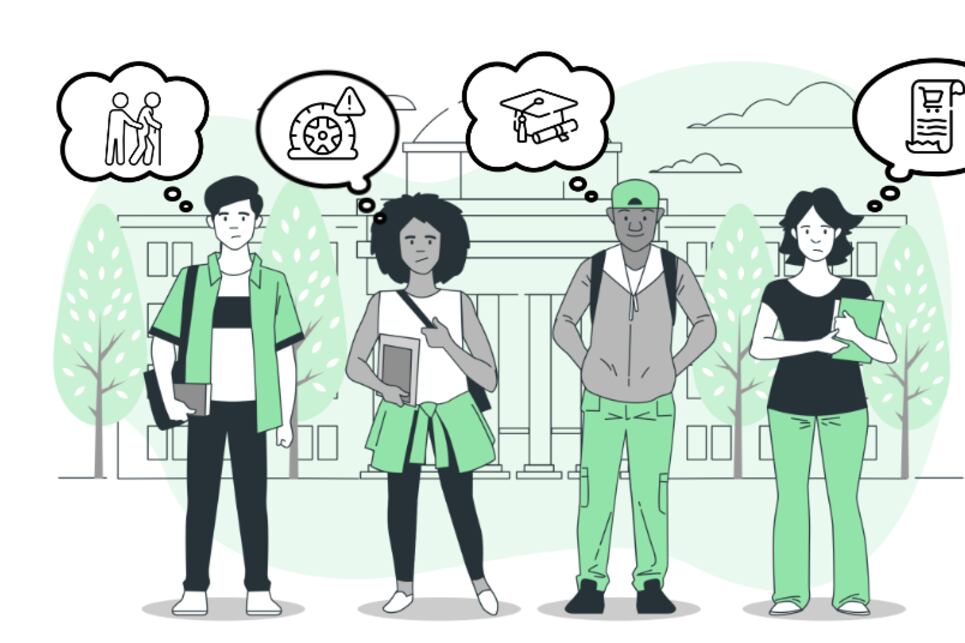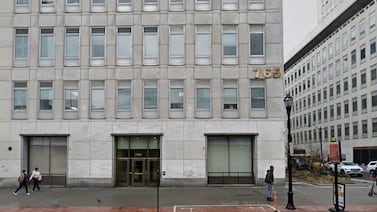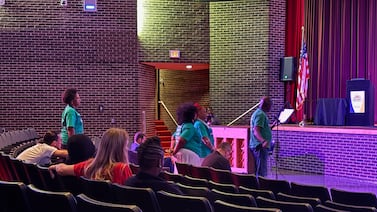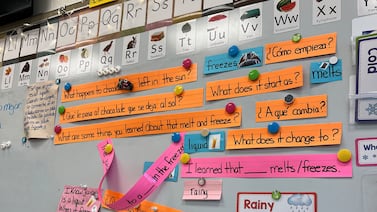Sign up for Chalkbeat Indiana’s free daily newsletter to keep up with Indianapolis Public Schools, Marion County’s township districts, and statewide education news.
This article was originally published by Mirror Indy, and is republished through our partnership with Free Press Indiana.
Indiana’s college-going rate was unchanged for the third year in a row, matching the generational low reached in 2020, the Commission for Higher Education announced during a meeting May 9.
In 2015, 65% of Indiana high school seniors were going on to college. Five years later, that number had fallen by 12 percentage points.
Fifty-three percent of the Indiana class of 2022 enrolled in college immediately after graduation — roughly the same rate as in 2020 and 2021. The college-going rate measures long-term certificates, associate and bachelor’s degrees.
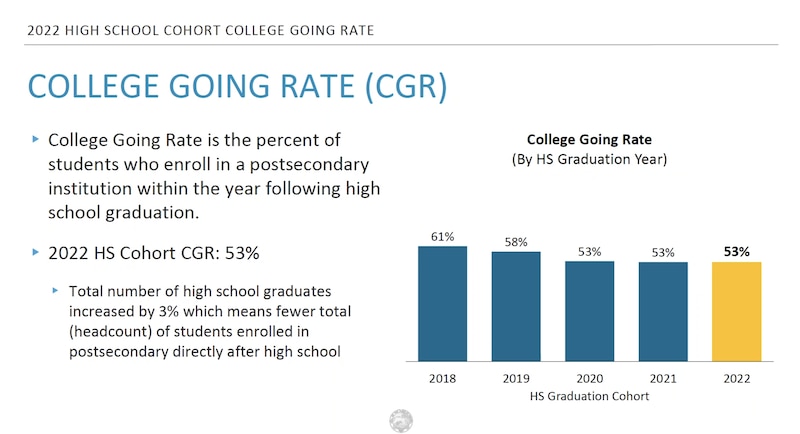
While Brooke Kile, the commission’s associate commissioner for business intelligence, framed stability as a positive, the lack of improvement is clearly a blow for policymakers who have been working to entice more Indiana students to go to college.
Further, more high school students graduated in 2022 than in 2021, meaning less students actually went to college as compared to the previous year. Of the students who did go onto college in 2022, 8% went to schools outside Indiana — the highest number in several years. That increase is a concern for the commission which wants to promote Indiana as a place to stay to build a career.
“One year is not a trend, so we are not necessarily sounding the alarm,” Kile said, “but we are definitely looking at what sort of early indicator data we can get from 2023 and 2024 cohorts to see if we need to evolve or do any sort of special initiatives to encourage students to stay in Indiana.”
The data runs about two years behind, so class of 2023 results likely won’t be released for another year.
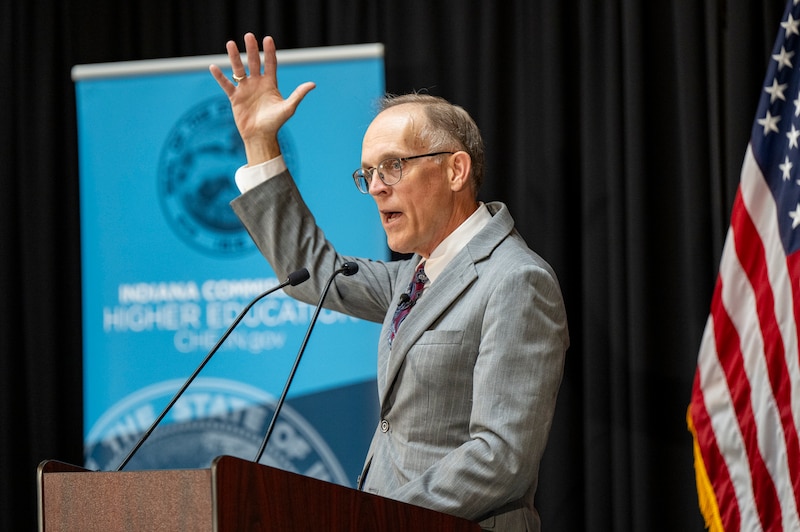
State leaders want to send more students to college
From 2019 to 2020, the college-going rate declined by five percentage points. Since then, the Commission for Higher Education has been working to get more students into college immediately following their graduation.
These efforts include sending high school students “pre-admission” letters that detail all the colleges in Indiana the students are eligible to attend based on grades and test scores and expanding state-approved college credit courses called the Indiana College Core.
Thanks to a 2023 law, the commission also now automatically enrolls income-eligible students in the 21st Century Scholars program by the end of eighth grade. Eighty-one percent of scholars from the class of 2022 went to college as compared to 30% of their low-income peers.
The first group of automatically enrolled 21st Century Scholars will graduate high school in 2027.
Despite the unchanged college-going rate, students who do attend college are staying in school, Kile said.
For the class of 2021, 77% of those students stayed enrolled in college for a second year — as compared to just 73% for the class of 2020. That’s the highest rate in over a decade, according to the commission.
Claire Rafford covers higher education for Mirror Indy in partnership with Open Campus. Get in touch with higher ed reporter Claire Rafford at claire.rafford@mirrorindy.org or on social media @clairerafford.

